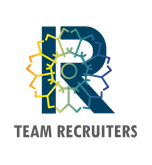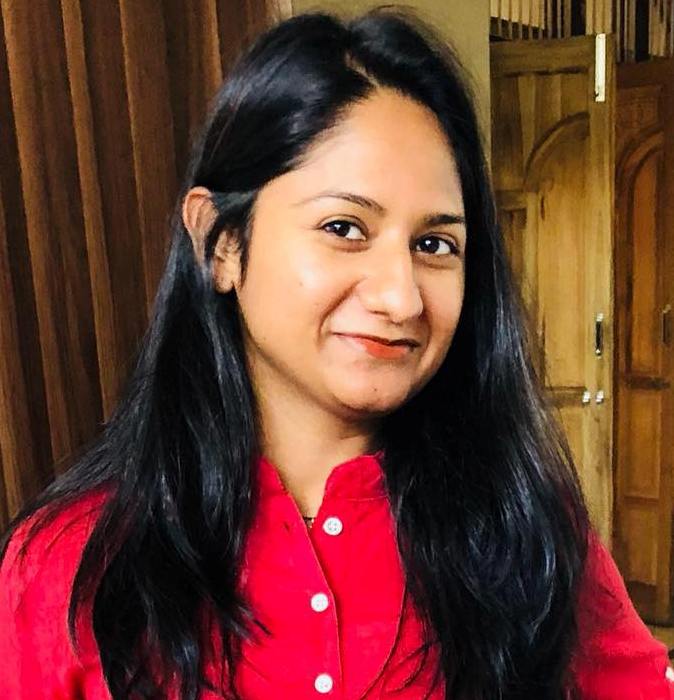
“One important key to success is self-confidence. An important key to self-confidence is preparation.” –Arthur Ashe
Finally, the wait was over and Roshini is getting geared up for that conversation. She was feeling nervous and entrapped in her anxieties. Till late night she was busy arranging her documents, her apparel, booking the cab, checking on her CV, setting an early morning alarm and hence, could barely sleep. Next morning again Roshni the college topper the one whose certificates could barely fit into a single large sized folder, went busy managing her cores. She coped up with the cab timings and reached the venue well before time all palpating and edgy. On her call she faced the representative of the company and survived the greatly awaited round. By some means she got hooked-up with the role but, was getting into this position in such modus, worth for Roshni? She didn’t feel rewarding and confident either after cracking the talk and landing into a job role which she had been eying!! What can the reason be?
The interview conversation is a two-way street, whereby the job applicant is proceeding towards the right job with each passing question and the employer is approaching to get the right candidate hired for his organisation. Apart from the hard skills already mentioned over the CV the candidates are judged on some more traits like-
- Personality
- Personal Characteristics
- Self-expression
- Maturity
- Enthusiasm and interests
- Experience
- Career goals
Above mentioned are all soft skill goals and Roshni would have been least confident about them as a result although she landed over a job but the journey was gruel some.
Even before applying for a job the most of its preparation should have already been done and the applicant mentally prepared for the role. Here are some must dos before appearing on a job interview.
- Delve into the company – Prior to interview, conduct a thorough research about the company so as to be able to articulate precisely about its mission, vision, values, and its size, work culture and also know whether they jive with your personality. It will liberate you to verbalise sharply and arrive at a better decision.
- Clarity about job role – The Company sincere for hiring will lay out daily job responsibilities in detail however, if the description is vague about the said position then possibly it is trying to sell the job role anyhow. It is advisable to make questions beforehand around the company to arrive at the accurate decision.
- Appreciate your value – Making a summary of your own strengths, unique skills, areas of expertise and weakness and be very clear about how you have been applying them in your projects successfully till date. Do share how these special traits have helped in your career path. Narrate the entire story uniquely.
- Stay honest about your strengths and weaknesses and refrain from boasting about them because “Self-awareness is the key to any superb job match.”
- Building up an emotional jive with the cross-examiner and trying to narrate a story of your career path. Success and failures all should be included to form an impressive presentation across the desk.
When is Interview coaching necessary?
- On the first hand interview coaching is led by professionals and this is definitely an edge over preparing in isolation. A standard interview coaching conducts mock interview sessions to assist you in placing all of your prep work into a routine, so no hustle at the last minute.
- Further, if the applicant chooses to swing careers then interview coaching will be of utmost help since such institutions provide tailored view of the job role. For instance if the applicant was serving as a software engineer and then switches to apply for the post of production manager then the whole lot of exercise has to be done behind the curtains to justify the story of such a change. These coaches also help in providing the inside knowledge of the company, the job role and most importantly prepare for the commonly asked questions till the personnel is confident about the same.
- Hard skills are the best to land on a job interview but soft skills are the key to the last mine. Whenever in doubt about soft skill competency, one must look forward to seek help from the career coach who leads your path towards successfully meeting your goals. From preparing on how to maintain an eye contact, how to dress up to providing real time and unambiguous feedback over mock interview sessions. Everything is served on a single plate!
What Professionals say about Our Services…
“The best way to find yourself is to lose yourself in the service of others ” – Mahatma Gandhi. When I got the reference of Profile Creation Services from Team Recruiters, I realized that Mahatma Gandhi was very right. My experience was very good with them!! I would like to express deep gratitude to the Team for having prepared my profile in the way they did and appreciation for the idea behind the profile. I feel that your understanding and knowledge of my career growth and experiences and your insight into my talent and potential will surely increase my chances of getting a good career growth.
“Thank you Team Recruiters for my Profile Creation!! I really appreciate and am thankful to Team Recruiters for providing this service!!”
“A professionally written Resume is a part and parcel of a good Job Search. First, it highlights your skills and experience in the area of work and secondly, it showcases if you have invested your time into crafting a resume perfect for your career growth path. So, it is very important to have a comprehensive and well-written resume while searching for a job. The Personal Profile Creation from Team Recruiters helped me a lot in finding out and understanding the true potential and quality which I have gained in my professional career. With support I was not only able to able to understand the actual points which I had till now not mentioned in my resume but also realised the potential of all such qualities which needed to be brought to the forefront of any such discussion. They discussed about each and every moment related to my professional career and have presented the same in my new Resume which gave a new life to my profile. It was just with in a few weeks after rolling out my new resume that I got several offers and got the new job with better position and role. I really appreciate and am thankful to Team Recruiters for providing this service!!”
“What I like best about “Team Recruiters” is that the firm not only provides guidance on subjects such as CV Writing and Interview skills, but they also provide a supportive network, a kind of guidance support to you and talk you through the roles that may be suitable for you. It’s a good feeling to know that you have support. I sincerely believe that finding the right company to work for is equally as important as finding the right position. “Team Recruiters” builds a relationship with you and identify companies and positions that would fit in with your skills and personality and that’s what makes them different from others. Glad to be associated with you!!
“I appreciate Team Recruiters, rather the people behind Team Recruiters, who are always there whenever I need a solution or guidance, whether it is as a guide for my professional career or a friend for solving my personal dilemmas.” I found it to be really very personalized & customized in service.”
“Team Recruiters was instrumental in providing the platform after I graduated from CMD, Modinagar. I was placed with Financial Technologies India Ltd as a Marketing Executive. Today, I still continue to work with the same organisation. During this period they have been there to guide me with my career planning and have advised me on career issues. I thank Team Recruiters for the support and the platform they have provided me.”
“Team Recruiters has been a ray of hope in my life!!! The efforts and guidance provided by the entire team especially Mr. Abhay, has given me a new identity. It has provided me a platform to work with Bonton Group which indeed has given a new shape to my career. I feel privileged and thankful to Team Recruiters for providing me with this opportunity and supporting me throughout my recruitment process. I would definitely like to take this bond ahead and wish that it always persists with same trust and faith throughout the journey of life. Good luck for new opportunities and keep going with the good work…!!!
I really appreciate the help of Team Recruiters for helping me build my CV and with the Mentoring and Interview related Coaching that they provided. There is a vast difference that I can see in my CV now, for eg. the usage of jargons according to the job description in my work ex. This ultimately helps in getting your CV qualified and selected. Happy with the services..!!!
FAQ Interview Coaching
Why work with an interview coaching before landing up in an interview?
- Industry- Depending upon the job role it may/may not be relevant to possess knowledge like that of an industry expert, But it is of prime importance to identify whether the industry and its culture lets the candidates keep their spirits high for now and will it continue to do so in the future as well.
- Culture- The interview coaching assists you in knowing the strategic ways to assess the true culture of the company. This will create a deeper understanding upon whether the resources working with the company or the real time culture of the company excites the candidate and at the same time is it engaging enough to keep the prospect motivated for times to come.
- Company- A candidate is expected to have a complete knowledge about the mission, vision and operations of the company along with the latest news related to it. The candidate should be confident enough to answer as to Why he is desirous of working for the company’s goal and should be able to explain what value he/she will be adding to the company in totality.
- People- A thorough research over the key players of the company and also the interviewers if possible. One should be aware of the people he/she would be surrounded by if inducted. This particular exercise will assist in making the prospect comfortable when faced with the board on an interview session.
- Process and Questions- The interview coaching also trains the candidate regarding the process of the hiring adopted by the company along with the variety of questions asked by the candidates applying for a particular job role. On the whole the young professional is able to sell himself/herself better to the companies applied.
What is the hiring manager looking into a candidate?
- Interview coaching helps a candidate to create a deep understanding of the key skills required for the job role the company is looking for.
- Type and duration of the work experience required by the company or in case the candidate is a fresher then similar experience gathered during the internships and projects undertaken to build up the same skill
- The interview coach will help the candidate create a well looped storyline around the career path of the candidate in case of any switch in the career or any lag over the career They are expert to detect what the company is exactly looking for.
- The interview coach assists in pinpointing the prevalent culture in the company and help the potential job seeker to demonstrate how he/she would add value to the job role.
How the interview coaching helps in effective research about the organisation and what are the benefits of it?
- Identify the skills and the experience the employer is looking for, this enables the candidates to precisely understand whether that position is a perfect fit or no.
- Know more about the key players of the organisation from the “About Us” page of the website and it is good enough to check out what these personalities say over Twitter.
- Remain updated about the latest events and news of the potential establishment.
- Learn more about the culture of the company from various social media accounts. It is most important for any employee to know about the mission and values of the organisation to be a perfect cultural fit.
- Make the candidate aware about the products and services offered by the company.
Such a research about the company assists the candidate in numerous ways:
- It shows that the candidate is desperate to work with the company and has done ample research work around the company profile.
- It demonstrates that the candidate keeps a track about ware about of the organisation and possesses up-to-date knowledge regarding the latest trends and news.
- The hiring manager feels positive about the resource and ask meaningful questions and expect meaningful answers.
- It is reflects that the prospect is fully convinced about the job role applied for.
What are the areas the interview coaching must guide the candidate to research about?
- Industry- Depending upon the job role it may/may not be relevant to possess knowledge like that of an industry expert, But it is of prime importance to identify whether the industry and its culture lets the candidates keep their spirits high for now and will it continue to do so in the future as well.
- Culture- The interview coaching assists you in knowing the strategic ways to assess the true culture of the company. This will create a deeper understanding upon whether the resources working with the company or the real time culture of the company excites the candidate and at the same time is it engaging enough to keep the prospect motivated for times to come.
- Company- A candidate is expected to have a complete knowledge about the mission, vision and operations of the company along with the latest news related to it. The candidate should be confident enough to answer as to Why he is desirous of working for the company’s goal and should be able to explain what value he/she will be adding to the company in totality.
- People- A thorough research over the key players of the company and also the interviewers if possible. One should be aware of the people he/she would be surrounded by if inducted. This particular exercise will assist in making the prospect comfortable when faced with the board on an interview session.
- Process and Questions- The interview coaching also trains the candidate regarding the process of the hiring adopted by the company along with the variety of questions asked by the candidates applying for a particular job role. On the whole the young professional is able to sell himself/herself better to the companies applied.
How to respond to the questions asked in the interview?
- Assists in identifying specific areas of concern on the professional’s profile and start working on it early. Any gap, be it over communication skills or any other soft skill concern it can be covered by starting for it early.
- Conduct research about the organisation, while applying for the job will help in framing career even better. One must try to familiarize about the basics of the organisation from their website, their products and services, knowing about its performance, work culture and average salary offered for the desired job role you are applying etc. It is advisable to learn more about their competitors, employees and random concerns.
- Searching over Internet or on websites like The Muse, Indeed, Glassdoor, Naukri.com etc. help to go through the commonly asked Interview questions. Getting well prepared for the interview inculcates confidence in real time.
- Make sure to arrange a neat bag with the copies of updated resume, notepad, pen, educational certificates and the list of accomplishments before the interview.
- Do not feel shy and be confident enough to ask a few questions to the hiring manager when asked for, but keep it focussed on relevant and meaningful subjects. This will show your interest and positive attitude for the job.
- Last but not the least dressing up appropriately creates a lasting impression, both in case of virtual interviews and face to face interactions.
- The coaching also helps to craft a power packed story line for answering open ended general questions like ”tell me about yourself?” because it is a robust method to engage and become memorable among the panellist. They guide the candidate to keep the story crisp and worthwhile.
- Interview is a two way trail, the interviewee should also ask questions from the interviewer/hiring manager not only to demonstrate his/her knowledge but also to make sure whether this job role is perfectly suitable to him/her. This will also showcase the passion to be inducted at that position.
- An interview coach helps professionals with additional preparation required for any specific interview. EX- In an interview of a role of a consultant a mock case study interview will be appropriate for practice and to practice for an interview for a tech role the coach may conduct a mock session to discuss the project or internship details etc.
- Netiquette is the new buzzword during these fluctuating times, the interview coach shares all the instructions to be followed while such virtual sessions.
What is the role of an interview coach?
- Industry- Depending upon the job role it may/may not be relevant to possess knowledge like that of an industry expert, But it is of prime importance to identify whether the industry and its customs keeps the spirits high of the candidate at the moment and continue to do so in the future as well.
- Culture- The interview coaching assists you in knowing the strategic ways to assess the true culture of the company. This will create a deeper understanding upon whether it is the people of the company the young professional is excited about or if the culture of the company truly is engaging enough.
- Company- A candidate is expected to have a complete knowledge about the operations of the company and the latest news related to it. The candidate is expected to know exactly why he is desirous of working with the company’s goal and should be able to explain what value he/she will be adding to the company in completeness.
- People- Do thorough research over the key players of the company and also the interviewers if possible. One should be aware of the people he/she would be surrounded by if inducted.
- Process and Questions- The interview coaching also trains the candidate regarding the process of the hiring adopted by the company along with the tribe of questions asked by the candidates applying for a particular job role
What are the key skill areas the interview coach helps in training?
- Positive body language –Confidence and enthusiasm demonstrated, by a strong and positive body language, perfect eye contact and appropriate volume of the voice can be aptly tutored by the coach.
- Professionalism – A candidate should be professional in his approach and draw a thin line of demarcation between work and life ethics and define its scope.
- Preparedness – It is vital to get well informed about the work carried out by the company and know how does one executes it efficiently.
- Authenticity – A realistic approach towards work and committing only what is possible and not boasting around in the organisation. Candidates have to be trained to earn credibility while working in the company and they should be able to understand that it is earned through years and not overnight.
- Technical competencies – The candidate should be capable and skilled to handle the work assigned over the job role and this is of much significance.
What are the areas of further refinement attained at the interview coaching?
- With enough practice the candidate’s build-up confidence and eliminate the robotic interview delivery at the final point of interaction.
- A coach will work with the trainee to create a strategy well in advance and such an approach builds up the right amount of conviction required at that particular time.
- Fidgety habits such as biting nails, umms, and twirling hair are screened by the expert who extends help to channelize them.
- A trainer assists to lead your own well looped story along with your strengths in front of the panel and narrate hem in a compelling and powerful manner.
How are logistics and etiquette coached by the instructor?
- How will you get at the venue?
- Where to you park you vehicle?
- How to avoid traffic issues etc?
- What to wear so that the appearance should be unique and professional?
- How do you exactly behave on the site and what all things should you be very careful about?
- He ensures that you act professional every time and will channel you for the perfect etiquette, calm, confident and focused throughout.
- What are the perfect netiquettes required to face a virtual interview session.
Why is interview coaching specifically useful to a candidate?
- If an applicant feels nervous before the interview then he/she is at the right spot which they need, an expert’s help who will make them practice commonly asked questions and appear in mock interview rounds n number of times so as to develop a feeling of preparedness and feel comfortable.
- If you are appearing over the interviews and not getting offers then the coach can help you trumpet your achievements and guide you through the righteous way to show them off.
- Already working executives looking for a job change or a career switch may have appeared in an interview years before hence this coaching helps to rehearse and rediscover oneself afresh. This is important because during the career path the professional must have picked up some new skills and those have to be well incorporated with the CV and also to be well dealt up in front of the hiring manager.
- For candidates who were at a sabbatical it is vital to provide a satisfying answer to the panel for the necessary sabbatical and hence need for the interview coach.
- If you want to be that extra confident or extra assured because you have to land over your dream job which is just one interview ahead then interview coaching is the only last stop.
- Upon identifying skill gap in specific soft skill areas, timely attending interview coaching can be a great help.
What are the varieties of interview coaching?
The interview coaches assist a candidate with other elements as well like what are the questions which can be asked by the applicant to the prospective employers and how to ask such questions without being considered over confident and rude.
Some coaches are experienced enough to guide you through specific interview situations where presentations are involved.
To add more to details a coach is proficient enough to show you how nonverbal communication is vital and what impact it has over the interview panel. He guides you about the expected body language and facial expressions to be demonstrated in front of the prospective employer to deliver a friendly, calm and compost gesture. A candidate who seem to be actively listening, friendly and interested becomes the first pick, undoubtedly.
How to find a professional interview coach?
Professional Resume Writers and Career Coach Website, friends, relatives and others already working with the industry are also people who can actually extend valuable support in finding one for you.
Note that a Professional Career coach will charge for the services provided, so it is advised to conduct a thorough research before hiring such a professional service.
When you cannot afford a Professional Career Coach?
Free Interview and Career Workshops are a narrow escape for such cases and plethora of such activities are being conducted all across during these times. A thorough research has to be done to find a suitable opportunity for yourself.
Seeking help from a friend or a family member to discuss frequently asked questions over the interview will do wonders. It is good to give a casual run through, on most of the answers to such questions because they are readily available over the job portals and interview coaching site as well.
Keeping deep faith over your abilities, focus and constant revision of the script prepared for each prospective question will glide you over the obstacles make sure you remain focused and well prepared to create a lasting impression upon an interaction.
What are the types of job interviews one can face?
Some companies have a complete test process as a part of the interview so as to judge how the prospect will handle some of the intricate situations, the problem-solving skills and leadership qualities. They try to judge each candidate by asking the same question in several different formats to test and compare the level of consistency in the answers and also test the honesty of a candidate, usually the questions are in the multiple choice questions format.
Underneath are the types of interview companies conduct and they are all discussed in detail:
- Phone and Screening Interviews –
As the name suggests this is the initial or ice breaking step towards the interviewing process, usually conducted by the Human Resource Department of the company. These interviews have direct questions for the candidate to identify whether the prospect is a fit case for the company’s work culture, possess appropriate skills, knowledge and qualifications for the job offered. This actually builds the right amount of engagement between the candidate and the establishment together. Some points to remember while attending such interviews are:
- Try to attend the interview with high energy, refrain taking questions on a flight.
- Prepare yourself well before answering to the interviewer and avoid multitasking.
- Communicate to the interviewer that you are not in a comfortable location if you are not prepared or not in a peaceful location.
- Select a place with no background noise because this is a faceless interaction and active listening is the most important trait of such an interface.
- Make sure you have a writing pad, pen and your resume to make notes whenever required.
- Emphasise more on the areas of your resume which are more relevant for the job position offered.
- About salary negotiation, quote accurate figures and do not waste the time of the interviewer. Try not to quote a figure for yourself where you find yourself caged, rather communicate that you want to learn more about the job position before you negotiate the salary of the same.
- Many a times it happens that this being the prime face of the complete interaction the company choose to not discuss this over a telephonic conversation, try to avoid raising this point yourself and pushing yourself in trouble.
- Face-To-Face Interviews –
These are the most popular types of interviews after the phone screening interview sessions. These are great gateways to prove that you possess the right amount of experience and skills for the job. The hiring managers want to test the right skills and experience. They want to know how much value addition the candidate will do to the establishment as against the remuneration the company is willing to pay. Some of the necessary points to be remembered while attending a Face-To-Face interview session are:
- Greeting the interview panel by adding Mr or Mrs as a prefix is welcomed.
- Make sure to put off your cell phone and avoid putting them over a vibration.
- Try to maintain a proper eye contact but avoid constant gazing.
- Stay true and genuine. It is the profession for the interviewer, what is just one time show for you, so they will definitely check your lies and this may prove against your selection.
- A firm hand-shake is a positive way to connect to people and is an effective non-verbal communication.
- The interview is a two way trail but let the hiring manager take the lead and eventually you may also continue to ask questions where ever necessary.
- Try not to step into a conversation other than with the interviewer. Let them finish over a point and then ask or say what is appropriate.
- Sit up straight. Right posture is the sign of the right amount of confidence. Lean forward to say and backward to listen to the conversation. Another positive trait.
- There may be a case when you might think that the interview is going awfully bad and you might feel pulled off, but it is always advised to stay. All the attempts to answer the queries till the end earns positive points. Loosing hope is not an option but a choice.
- You are being watched at the waiting area too, over CCTV cameras and your interview does not get over till you finally drive down. So, be careful and cautious every time.
- Try to arrive 15 minutes in advance to avoid unnecessary confusion.
- Share a thank you note to the interviewer it is not only an important interview etiquette but this is a way to stay connected and engaged till the entire process is completed.
- Try to be clear in what you say and voice modulation is an art of effective communication.
- Try to be precise in answering and a well linked story is fair enough to grab the hiring manager’s attention.
- Try not to over rate or under state your aspirations, both are dangerous and may be powerful enough to eliminate you.
- Be mindful while being interviewed in front of a panel or sitting across a single interviewer, address them appropriately and keep yourself calm, composed and alert anyway.
- Multiple Interviews –
The bigger the establishment the higher possibility of candidates being judged over multiple interview sessions. Some of the companies conduct three interviews while others conduct as high as five interviews. These are spread across on several weeks-time or on a single day. Such interviews are a mix of panel, group and One-on-One interview rounds.
- Candidate Group Interviews –
Candidates applying for the same job position are simultaneously judged and are set to compete against each other. These are conducted ideally to evaluate the leadership skills, professionalism and the ability of each candidate to work in stressful situations with peer groups. The only tip that works wonders for such interview sessions is that one must feel confident, comfortable and not let stress steal the show.
- Committee or Panel Interviews –
Many a time’s companies try to adopt tricks and save on time to evaluate the right candidate. Several members of the same company sit across a table and interview the job applicant simultaneously. This helps to judge a candidate who can deal with more pressure and still stay collected during the course. Below are a few tips to be kept in mind during such collective interactions:
- Make sure to connect with each member over the panel and address and connect with them individually.
- During introduction shake hands, maintain eye contact and repeat their names during the course.
- Try to engage with all the siting members of the panel even though you are answering to one of the members out there.
- Breakfast or Lunch Interviews –
This world is full of variety of personalities and their view points. Some managers try and interview in an informal space outside their office just to have an insight on how a candidate behaves in a more comfort zone. Some standards still need to be maintained in such an informal setting because you are being watched closely every time:
- Try and follow the menu choices and etiquettes of the senior but refrain ordering drinks and food which you do not really consume.
- Avoid ordering the most expensive delicacy over the menu card.
- Refrain consuming alcoholic beverages.
- Mind your table manners and speak only after you finish eating food in your mouth.
Above are all common etiquettes but most of the candidates give not weightage to it and find themselves caged.
- Virtual Interviews –
Such interviews were conducted initially when the head office of a company was far enough and the company considered waste of time and money to physically ask each candidate to come over for an interview but these have become a normal now with the spread of pandemic and work from home opportunities explored to another level of scope and comfort. It is more like a Face-To-Face interaction. Some tips to be followed are:
- Keep you virtual identity professional.
- Download the app, test audio and video well in advance.
- Use a background of a wall or a curtain and in case you lack then try to use virtual backgrounds available over the app.
- Ensure that the gadgets are charged and you choose a calm and noise free zone to sit.
- Mute and unmute yourself for smooth conduction of the session.
- Ensure a stable network.
- Keep the workstation clutter free.
- Sit while your hands over the table.
- To make proper eye contact look into the camera and use earphones and mike for better voice clarity.
- Behavioural Interviews –
Scenario based questions are presented before the candidates and they are judged on the basis of how they dealt the question or situation rather than what was the righteous way of dealing with the said situation. It is presumed that you would try to handle situations from your past experiences so make sure you go through your resume and the list of challenges you came across thoroughly before you face questions from the hiring manager.
- Stress Interviews –
Interviewers try to behave rude, sarcastic and argumentative over the sessions and prevent you to perform your best and want to evaluate whether you are a perfect fit to work under stressful and challenging situations.
Candidates are advised to make cool of them and be calmer of their selves as it is they have nothing in hand to lose.
How much an interview coaching will cost to me?
Is your resume not enough for a wonderful job?
A good resume is required to get you invited for an interview; it is a game changer for any professional and provides a platform from where numerous possibilities arise. It helps to open doors, to help you move forward in the right path on your career growth. A perfect resume draws the attention of the Hiring Manager and gets you Shortlisted from amongst the many prospective that are available on the job portals and professional networking sites like LinkedIn.
A good resume gets you shortlisted and is the first step up the ladder of recruitment. It acts as an introduction of the professional, a first impression which opens the door of opportunities in one’s career. It helps you in identifying suitable job opportunities and similarly it helps prospective employers and recruiters to find a good fit or a right match for the positions.
Why is interview coaching important for working executives?
- At first a very strong reason is a career switch, due to any reason both out of choice or a forced option but this leaves the executive at a helm and thus need a professional’s hand holding.
- Working executives had already appeared over an interview long back and now facing them may pose a difficult challenge, it is better to try and seek expert help from around the industry and get oneself trained.
- Rusty strategy and poor interview skills may pose a negative effect on one’s career, this is common with working professionals because they were already working and are most often out of the main track and unaware of the latest trends of the industry.
- It is important to provide satisfying answers to questions based on situations. These should be well thought off in advance before attempting them.
How long does it take to become interview ready?
My interview with a company is scheduled in two days can I get myself prepared with your coaching services?
We encourage to drop in any related questions/confusions and queries on the email id: enquiry@teamrecruiter.in wherein they shall be dealt with appropriate diligence and answered by our coaches or an expert from the industry and updated in a stipulated time.
What happens if is cancel or reschedule my particular session/s then I get less than what I have paid for?
I am concern about my confidentiality. How do you deal with this?
How is Coaching different from Training and Mentoring?
- Coaching is done where you are seeking to create an employee in particular competencies using performance management as a tool with the senior manager involved.
Mentoring is when you are looking forward to evolve new leaders or develop a talent pool as a part of a corporate program.
Training is done where you want to provide an outgoing employee some or the other training and development which supports further planning by making experienced and capable employees to assume a much senior role since they are available in abundance.
- Coaching is required where one or more number of employees are not performing as per the expectations.
Mentoring is needed where you try to develop many employees across the organisation to get rid of the barriers in their success path.
Training is mostly useful to skill, up-skill or multi-skill a set of employees of an organisation to be used in diverse fields to maintain the standards of the industry standards.
- Coaching is much needed where your company is trying to induct a new program and all the employees are expected to become more proficient in their of expertise.
Mentoring is useful where you seek to develop your employees in ways that they are proficient in specific skill and competencies.
Training is of much importance in areas where the company wants to invest in development and growth of its employees and open extensive career pathways within your organisation, as against having them seek next level opportunities anywhere else.










Comments are closed.